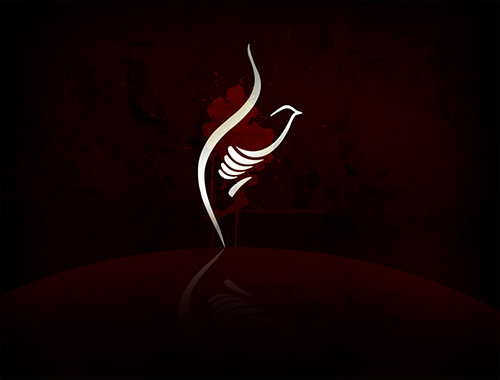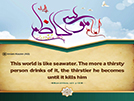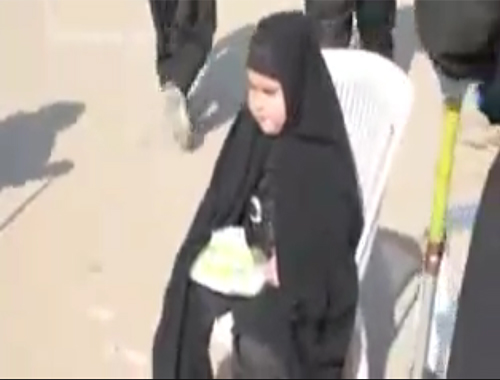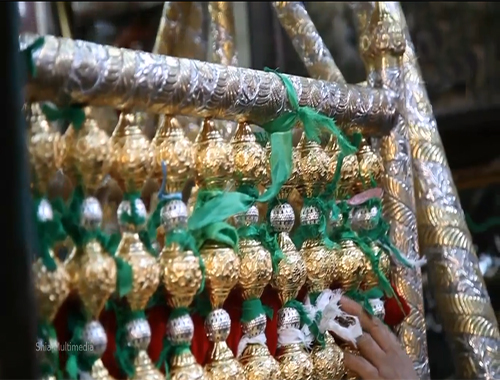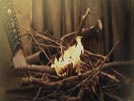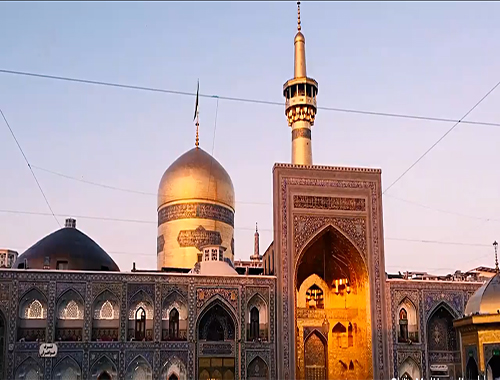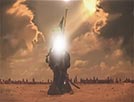Verses1-7
- Details
- Hits: 2518
Sura Qashiyah
(The Overwhelming Event)
No.88 ( Verses1-7)
(1) هَلْ أَتَاكَ حَدِيثُ الْغَاشِيَةِ
(2) وُجُوهٌ يَوْمَئِذٍ خَاشِعَةٌ
(3) عَامِلَةٌ نَّاصِبَةٌ
(4) تَصْلَى نَارًا حَامِيَةً
(5) تُسْقَى مِنْ عَيْنٍ آنِيَةٍ
(6) لَّيْسَ لَهُمْ طَعَامٌ إِلَّا مِن ضَرِيعٍ
(7) لَا يُسْمِنُ وَلَا يُغْنِي مِن جُوعٍ
In The name of Allah, The beneficent, The Merciful
1. Has the story reached thee, of Qashiyah (the Overwhelming Event that covers all)?
2. Some faces, that Day, will be down cast,
3. Labouring (hard), weary,
4. Entering into Blazing Fire,
5. They will be given to drink from a boiling hot spring,
6. No food will there be for them but of Dari' (a bitter and thorny plant loathsome in smell).
7. which will neither nourish nor satisfy hunger.
Commentary:
They Are Weary, But With No Gain:
In the first verse of this Sura we are introduced to another name for the Hereafter; Qashiyah:
Has the story reached thee, of Qashiyah (the Overwhelming Event that covers all)?
The term 'Qashiyah' is based on /qishawat/ 'to cover'. The choice of this name for the Hereafter is for the reason that the terrible events of it will suddenly cover everything.
There are some other commentaries about the term 'Qashiyah', but the one mentioned above is the most suitable.
The verse apparently addresses the Prophet (p.b.u.h.) and it is he who is being questioned in order to show the importance of the Day.
Some commentators have said that all human beings may be the addressees; which seems improbable.
* * * *
Then, to explain the mood of the sinners, it says:
Some faces, that Day, will be down cast
They are full of shame and fear, because of the horrible chastisement of the Day. Since it is Man's face which mostly reflects spiritual moods, so, their faces will clearly show their complete debasement and horror.
This commentary is the most appropriate among the others.
* * * *
Labouring (hard), weary,
They gain no profit, in their lives; only weariness, from their arduous efforts and endeavours. They have neither approvable good deeds nor can they take anything of their wealth with them, nor do they leave fame among people or a good child after them. They are tired from their striving, but, in fact, they own nothing. What a suitable sentence about them: Labouring (hard), weary,!
This commentary seems to be the most agreeable.
* * * *
Finally, those who struggle, in vain; who are weary, arrive at the blazing fire, so it says:
Entering into Blazing Fire,
The term /tasla/ is based on /saly/ which means 'to enter into burning fire to suffer the pain of being burnt'.
* * * *
This will not be their only punishment. When they are thirsty:
They will be given to drink from a boiling hot spring,
The term /aniya/ is the feminine form of /ani/ 'boiling hot water, the temperature of which is at the highest degree'.
A similar meaning for the hot water is noted in Sura Kahf,No. 18, verse 29: ...if they implore relief they will be granted water like melted brass that will scald their faces. How dreadful the drink! How uncomfortable a couch to recline on!
* * * *
In the next verse, it tells about their food when they are hungry:
No food will there be for them but of Dhari' (a bitter and thorny plant loathsome in smell).
The opinions of the commentators are divided about the meaning of /dhari'/:
Some of them have said that it is a sort of plant, having large thorns and grows close to the ground. The people of Quraysh call it /sibriq/ when it is in its fresh state; and it is called /dhari'/ when it is in its dry state. It is also said to be a poisonous plant which no beast will approach, because of its harmful quality.
Khalil', a philologist, says: /dhari'/ is a green plant with a bad smell which is cast out of the sea upon the beaches.
'Ibn-Abbas' has said that it is a tree of fire, fit for Hell, that if it were in this world, it would burn the earth and all the things on it.
But there is a narration from the Prophet (p.b.u.h.) which says:
/dhari'/ is something in Hell. It is like thorns, more bitter than aloes, more fetid than a putrid corpse, and more burning than fire. Allah has named the thing /dhari/. (1)
Other people have also said that /dari'/ is a hellish food, of which the condemned, in Hell, cry to Allah to get rid of it.
The above commentaries relate to each other and all of them may be correct for defining the meaning of the word.
* * * *
Then, again about the same food, it says:
which will neither nourish nor satisfy hunger.
It is certain that such a thing is a food that will neither give nourishment, to the body, nor in any way satisfy the burning pangs of hunger. It is a punishment for the unbelievers as Sura Muzzammil, No. 73, Verse 13 says: And a food that chokes and a Penalty Grievous.
They prepared sweet and delicious foods of many varieties for themselves, in this world, through cruelty and the violation of people's rights: they forced the oppressed to use unedible, choking food. So, the oppressors should have a kind of food in Hell that is 'a Penalty Grievous' for them.
As it has been mentioned several times, neither the blessings in Heaven nor the punishments in Hell can be thoroughly described for us; we prisoners of this world. In fact, these are but some allusive hints to the Reality.
(1) Tafsir-i-Qurtubi, vol.10. page 7119.

